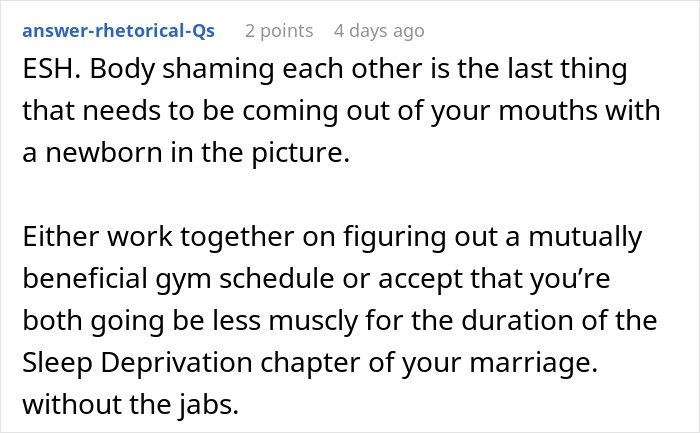Parenthood can really shake up a relationship. All of a sudden, every house chore, responsibility, and anxiety doubles while sleep, relaxation time, and romantic dates become almost nonexistent.
Not long after, partners might feel like the other is not helping enough or their parenting style isn’t to their liking, so the tension starts to grow and so does the bickering.
Redditor ApprehensiveWaltz904 and his wife were at the 6-month mark when they started picking small fights with each other. But when the sensitive topic of his weight was brought up by his partner over and over again, he couldn’t stop himself from getting back at her. When the vengeful comment about the wife’s postpartum body slipped out of his mouth, she ran off crying.
Hesitant to apologize, he turned to the “AITAH” subreddit, asking its members if what he did was wrong.
Newborns require a lot of time and energy, which leads exhausted parents to bicker

Image credits: nappy / Pexels (not the actual photo)
This wife struck her tired husband’s nerve with her constant comments on his weight
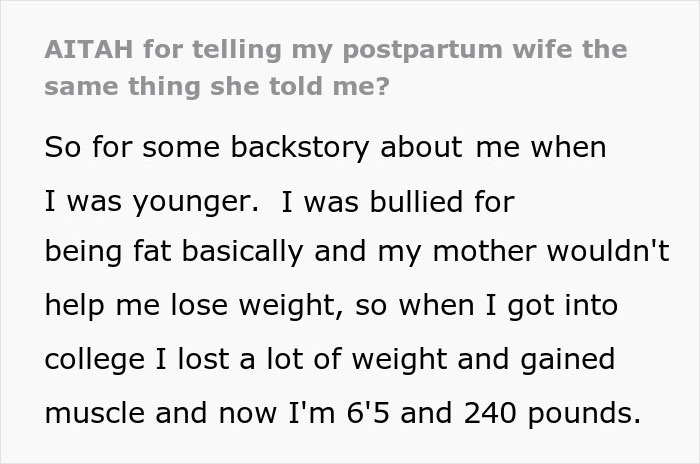



Image credits: Keira Burton / Pexels (not the actual photo)




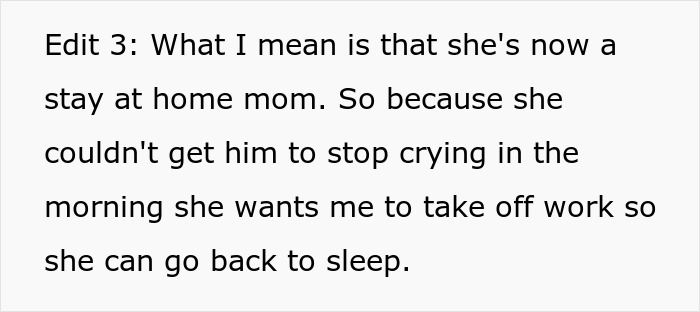

Image credits: ApprehensiveWaltz904

Image credits: Alex Green / Pexels (not the actual photo)
Relationship difficulties after having a baby
Research has shown that couples typically report increasing conflicts and decreasing satisfaction when their first child is born. Many reasons contribute to these feelings, like adjustment to new roles and exhaustion of time, sleep, and money.
A family therapist, Stacey Sherrell, told the BBC that one reason for quarrels is having less time to focus on relationship issues like poor communication. And behaviors that might have been a little annoying before kids might turn into a full-fledged problem.
Such issues also affect couples who think they are rock-solid. Despite believing they have the best relationship in the world, there still needs to be understanding and conversations about things that make parenthood hard.
Even when both parents work and share the burden of household chores seemingly equally, most of them slide into gender-stereotypical roles of parenting. And women are more likely to be the ones who get up in the night shushing the baby, cooking, and cleaning.
New mothers also tend to cut their working hours or be stay-at-home moms, which puts more financial responsibility on the father. Just like that, men spend more time at work, while women do more housework and childcare. Being the default parent can be exhausting, while the more absent parent might feel guilt and distress. This tension at home can lead to long-term resentment and fighting.

Image credits: Keira Burton / Pexels (not the actual photo)
Managing parenting challenges as a team
If one partner feels like they’re doing all the work and never taking a break, frustration, and anger can arise in a marriage. Therefore, dividing responsibilities equally can relieve this pressure. Whether one wants to be a stay-at-home parent or they both want to work, household chores, childcare, and meal preparation should be split equally in a way that suits the family best.
To plan for a restless and draining period, couples should decide how to handle the sleepless nights. It’s best to avoid scenarios where one parent rests through the night without getting up to tend to the baby. Even if one of them is working through the week and the other stays at home, they can develop a plan that allows both of them to get some sleep.
For example, a working parent can do a night shift with the baby during the weekend. Or if the mom is staying at home and breastfeeding, the dad could get up, change the diaper, and bring the baby to her. In cases where both parents are working and bottle feeding, they can take turns tending to the baby through the night.
Showing appreciation can also go a long way. Saying something like “You’re so good with the baby” or “Thanks for working and letting me stay at home with the baby” gives the partner some positive energy to face another challenging day of parenting. It doesn’t come easily to some, so writing a thoughtful note once a week can be a great introduction to practicing gratitude in marriage.
Lastly, parents have to be willing to accept that the other partner may do things differently, and that’s totally fine. No two people will interact with or parent their children in the same way. Differences in changing the diaper or feeding the baby shouldn’t be corrected or commented on because it prevents one from helping out with the child.
Commenters say the husband is not to blame


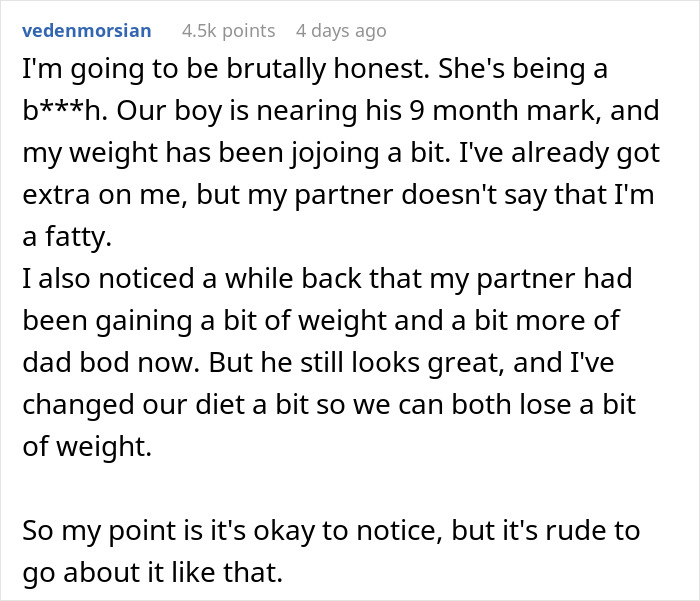
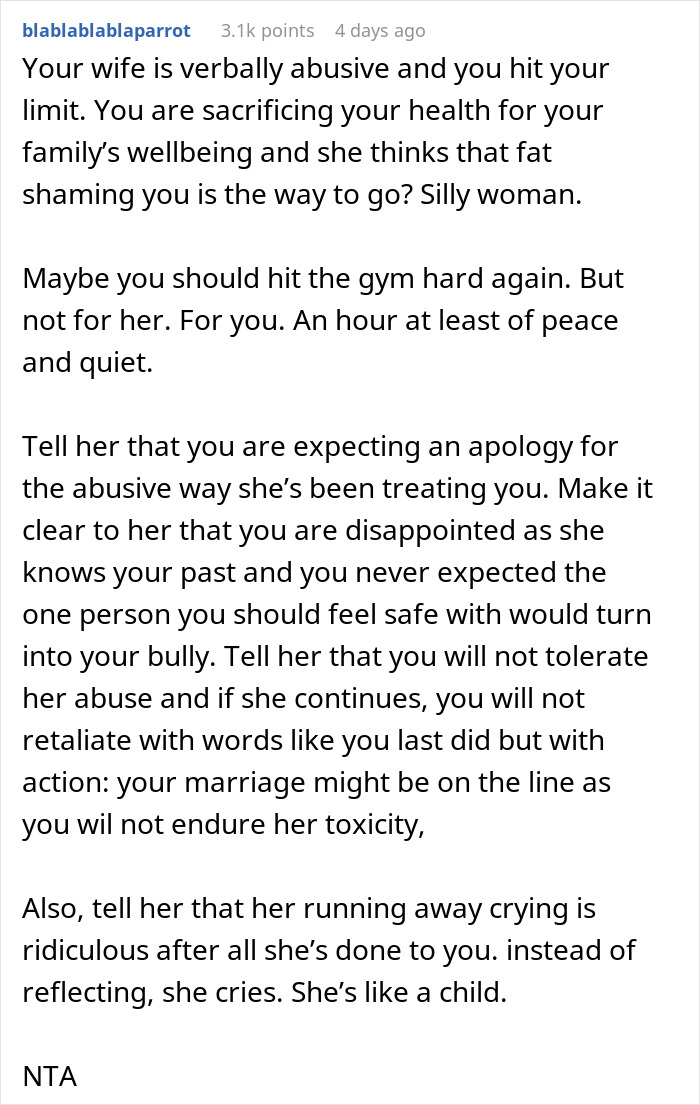







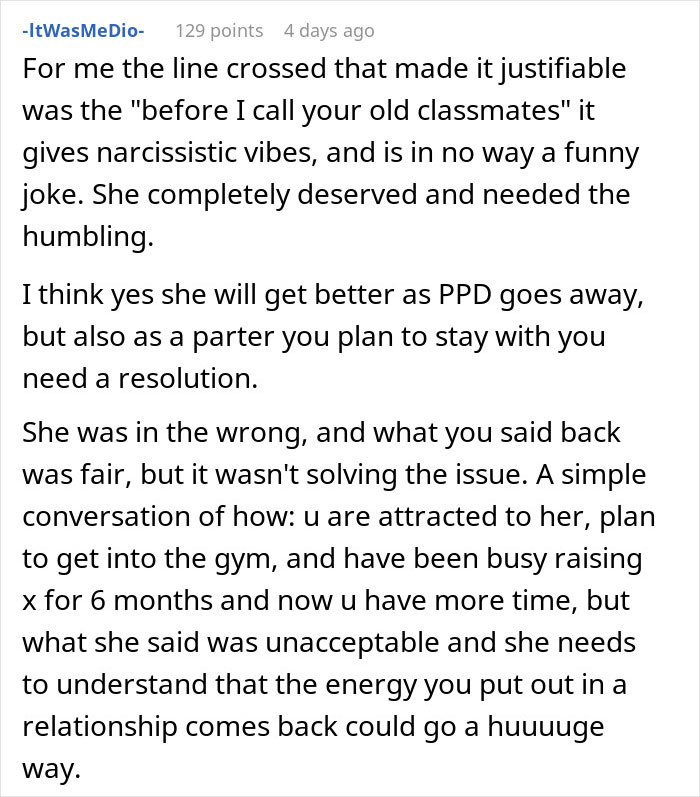

Some even say they both screwed up


